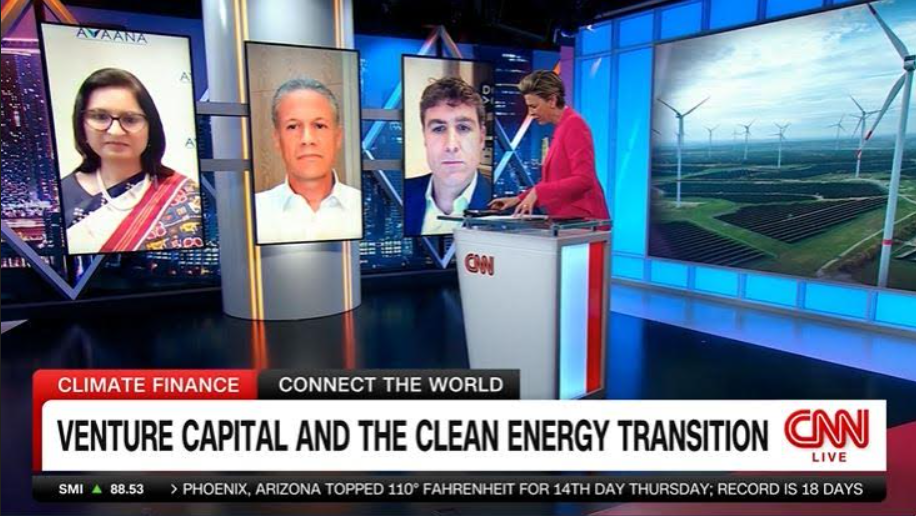A large amount of investment is needed to reach net zero by 2050.
CNN’s Becky Anderson sat down for a panel conversation with Badr Jafar, CEO of Crescent Enterprises and President of Crescent Petroleum – the first independent and privately owned petroleum company in the Middle East – as well As Anjali Bansal of Avaana Capital and Zachary Bogue of DCVC, to discuss the role that venture capital can play in the clean energy transition.
Key quotes from Jafar:
On criticisms over whether the worlds of fossil fuels and green energy can coexist:
“We need to stop pointing figures, and we need to stop this reductionist thinking and to focus on inclusive funding and delivery mechanisms that compound our strengths, our collective strength to deliver on our climate to nature goals, and the UAE really is an ideal place for this inclusive co-creating of solutions.”
On the UAE’s green agenda:
“The UAE is a great example of a country that in just two generations rapidly diversified its economy, with over 70% GDP to date, coming from outside the oil and gas sector. The country’s green agenda, which was launched well over 10 years ago, and it’s net zero by 2050 strategy, clearly laying out an implementation plan that embraces green tech to further transform our economies towards net zero and nature positive, whilst, of course, generating even more opportunities, and not just for those living in the UAE, but really for the wider region.”
On venture funding in green tech in the region:
“The report that Crescent enterprises recently commissioned revealed that we’ve seen an elevenfold increase in venture funding towards green tech over the past 5 years.
But the data also revealed that climate tech also represents less than 5% of venture funding in the region, which, of course, is significantly less than the global average of close to 20%.
So this represents an opportunity. And my belief is that the more we can debunk the myth that the greener something is, the less profitable it is, the more capital we’re going to see flow into this space.”
On what it takes to ensure an equitable green future:
“A big piece of this social equity is ensuring that green skills across these regions of the world keep up with green opportunities.
And if we don’t do that, then we’ll see both, I think, an exacerbation of job crises in many regions that are already dealing with record youth unemployment as well as the green revolution hitting a brick wall in many of these economies.
Now with the Middle East, the solution again, lies in investing heavily in education and training to ensure that our workforce is equipped with the necessary technical skills, knowledge, behaviors, and capabilities to required to tackle our environmental challenges.”
On what makes the upcoming COP28 different from previous COPs:
“This time it has to be an all of the above approach, not on either or approach, and also leaving no one behind approach.”


